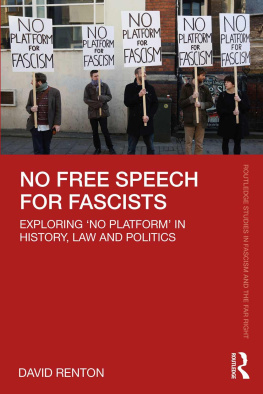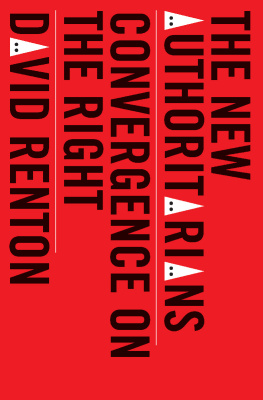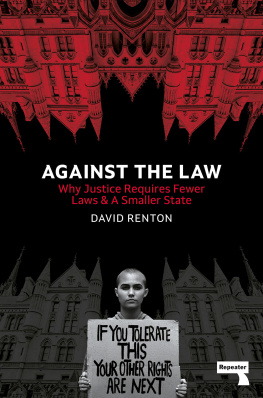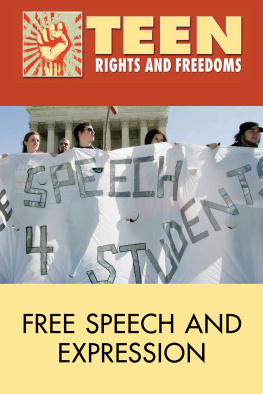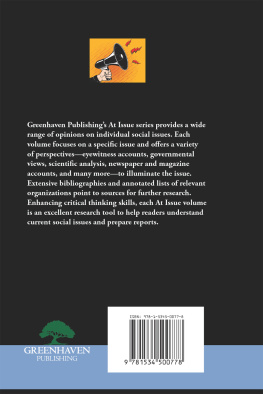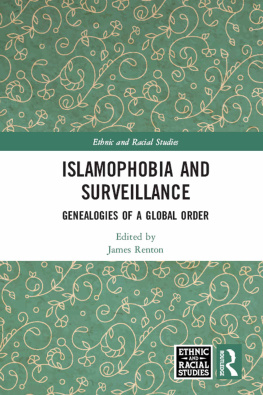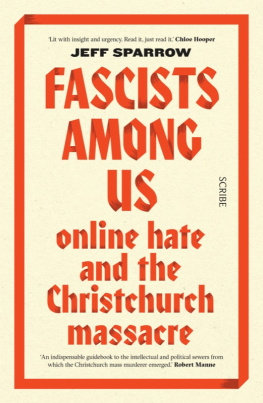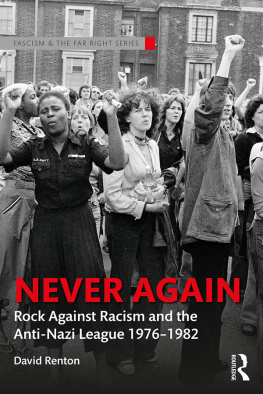David Renton - No Free Speech for Fascists (Routledge Studies in Fascism and the Far Right)
Here you can read online David Renton - No Free Speech for Fascists (Routledge Studies in Fascism and the Far Right) full text of the book (entire story) in english for free. Download pdf and epub, get meaning, cover and reviews about this ebook. year: 2021, publisher: Taylor and Francis, genre: Politics. Description of the work, (preface) as well as reviews are available. Best literature library LitArk.com created for fans of good reading and offers a wide selection of genres:
Romance novel
Science fiction
Adventure
Detective
Science
History
Home and family
Prose
Art
Politics
Computer
Non-fiction
Religion
Business
Children
Humor
Choose a favorite category and find really read worthwhile books. Enjoy immersion in the world of imagination, feel the emotions of the characters or learn something new for yourself, make an fascinating discovery.
- Book:No Free Speech for Fascists (Routledge Studies in Fascism and the Far Right)
- Author:
- Publisher:Taylor and Francis
- Genre:
- Year:2021
- Rating:4 / 5
- Favourites:Add to favourites
- Your mark:
- 80
- 1
- 2
- 3
- 4
- 5
No Free Speech for Fascists (Routledge Studies in Fascism and the Far Right): summary, description and annotation
We offer to read an annotation, description, summary or preface (depends on what the author of the book "No Free Speech for Fascists (Routledge Studies in Fascism and the Far Right)" wrote himself). If you haven't found the necessary information about the book — write in the comments, we will try to find it.
No Free Speech for Fascists (Routledge Studies in Fascism and the Far Right) — read online for free the complete book (whole text) full work
Below is the text of the book, divided by pages. System saving the place of the last page read, allows you to conveniently read the book "No Free Speech for Fascists (Routledge Studies in Fascism and the Far Right)" online for free, without having to search again every time where you left off. Put a bookmark, and you can go to the page where you finished reading at any time.
Font size:
Interval:
Bookmark:
No Free Speech for Fascists
No Free Speech for Fascists explores the choice of anti-fascist protesters to demand that the opportunities for fascists to speak in public places are rescinded, as a question of history, law, and politics. It explains how the demand to no platform fascists emerged in 1970s Britain, as a limited exception to a left-wing tradition of support for free speech.
The book shows how no platform was intended to be applied narrowly, only to a right-wing politics that threatened everyone else. It contrasts the rival idea of opposition to hate speech that also emerged at the same time and is now embodied in European and British anti-discrimination laws. Both no platform and hate speech reject the American First Amendment tradition of free speech, but the ways in which they reject it are different. Behind no platform is not merely a limited range of political targets but a much greater scepticism about the role of the state. The book argues for an idea of no platform which takes on the electronic channels on which so much speech now takes place. It shows where a fascist element can be recognised within the much wider category of far-right speech.
This book will be of interest to activists and to those studying and researching political history, law, free speech, the far right, and anti-fascism. It sets out a philosophy of anti-fascism for a social media age.
David Renton is a British historian and barrister. His other books include Labours Antisemitism Crisis: What Should the Left Have Done? (Routledge 2022) and Never Again: Rock Against Racism and the Anti-Nazi League 19761982 (Routledge 2019).
Routledge Studies in Fascism and the Far Right
Series editors
Nigel Copsey, Teesside University, UK and Graham Macklin, Center for Research on Extremism (C-REX), University of Oslo, Norway.
This new book series focuses upon fascist, far right and right-wing politics primarily within a historical context but also drawing on insights from other disciplinary perspectives. Its scope also includes radical-right populism, cultural manifestations of the far right and points of convergence and exchange with the mainstream and traditional right.
Titles include:
The Rise of the Dutch New Right
An Intellectual History of the Rightward Shift in Dutch Politics
Merijn Oudenampsen
Anti-fascism in a Global Perspective
Transnational Networks, Exile Communities and Radical Internationalism
Edited by Kasper Braskn, Nigel Copsey and David Featherstone
British Fascism After the Holocaust
From the Birth of Denial to the Notting Hill Riots 19391958
Joe Mulhall
Fascism, Nazism and the Holocaust
Challenging Histories
Dan Stone
Frances Purveyors of Hatred
Aspects of the French Extreme Right and its Influence, 19181945
Richard Griffiths
Conservatives and Right Radicals in Interwar Europe
Edited by Marco Bresciani
Radical Right Populism in Germany
AfD, Pegida, and the Identitarian Movement
Ralf Havertz
No Free Speech for Fascists
Exploring No Platform in History, Law and Politics
David Renton
Global Resurgence of the Right
Conceptual and Regional Perspectives
Edited by Gisela Pereyra Doval and Gastn Souroujon
For more information about this series, please visit: www.routledge.com/Routledge-Studies-in-Fascism-and-the-Far-Right/book-series/FFR
No Free Speech for Fascists
Exploring No Platform in History, Law and Politics
David Renton

First published 2021
by Routledge
2 Park Square, Milton Park, Abingdon, Oxon, OX14 4RN
and by Routledge
605 Third Avenue, New York, NY 10158
Routledge is an imprint of the Taylor & Francis Group, an informa business
2021 David Renton
The right of David Renton to be identified as author of this work has been asserted by him in accordance with sections 77 and 78 of the Copyright, Designs and Patents Act 1988.
All rights reserved. No part of this book may be reprinted or reproduced or utilised in any form or by any electronic, mechanical or other means, now known or hereafter invented, including photocopying and recording, or in any information storage or retrieval system, without permission in writing from the publishers.
Trademark notice : Product or corporate names may be trademarks or registered trademarks, and are used only for identification and explanation without intent to infringe.
British Library Cataloguing-in-Publication Data
A catalogue record for this book is available from the British Library
Library of Congress Cataloging-in-Publication Data
A catalog record has been requested for this book
ISBN: 978-0-367-72219-7 (hbk)
ISBN: 978-0-367-72062-9 (pbk)
ISBN: 978-1-003-15393-1 (ebk)
Typeset in Bembo
by Deanta Global Publishing Services, Chennai, India
Contents
PART I
History
PART II
Law
PART III
Politics
Introduction
The purpose of this book is to help readers decide whether fascists should be allowed to speak. The scenario it envisages is as follows. The leaders of a political party share with interwar fascism a taste for violence, an insistence that the nation is under threat and that their country can only be restored to greatness if democracy is limited and the partys many critics silenced. One of those leaders has been offered a platform: a chance to give a televised talk, or an election meeting, or a lecture at a university. Anti-fascists insist that if the fascist is permitted to speak the rights of everyone else will be diminished. They call on the organisers to rescind the fascists invitation to speak. Are the anti-fascists correct to demand that the fascist meeting is cancelled?
There are other books which also address this question. Most of their authors say that restricting free speech in this way is always and unequivocally wrong (i.e. that free speech must take precedence), You can characterise these both as free speech positions, albeit that one is absolute while the other is conditional.
The theme of this book is whether speech can legitimately be restricted even in circumstances where violence is only a latent rather than an immediate threat. Fifty years ago, parts of the British left worked out a sophisticated answer to this question: no platform. Since then, the phrase no platform has become common across the English-speaking world, as has the related but different idea of deplatforming. The way these terms have been used is less specific than in the 1970s and includes actions (for example, the restriction of access to social media sites) which were inconceivable 50 years ago. The original idea of no platform was to deny opportunities to speak to fascists because they were fascists. The tradition of Mussolini and Hitler believed in silencing Communists, conservatives, liberals, feminists, indeed everyone except for themselves. Refusing to let their speech go unanswered was not about reducing the number of people speaking; rather, it was a means of protecting the number of people who could be heard.
The distinctiveness of no platform lay not only in answer to the question of who should be refused a platform (i.e. fascists, and fascists only). The theory also had an idea as to who should decide whether a speech was curtailed. The subject of no platform was a mass movement, whether of radical trade unionists, rebellious students, or advocates of black power or of womens liberation. The supporters of no platform were not asking for the state to side with them. Rather, they assumed that an insurgent people needed to take back power both from the authoritarian wing of the state and from its allies, among whom the fascists could be counted.
Next pageFont size:
Interval:
Bookmark:
Similar books «No Free Speech for Fascists (Routledge Studies in Fascism and the Far Right)»
Look at similar books to No Free Speech for Fascists (Routledge Studies in Fascism and the Far Right). We have selected literature similar in name and meaning in the hope of providing readers with more options to find new, interesting, not yet read works.
Discussion, reviews of the book No Free Speech for Fascists (Routledge Studies in Fascism and the Far Right) and just readers' own opinions. Leave your comments, write what you think about the work, its meaning or the main characters. Specify what exactly you liked and what you didn't like, and why you think so.

